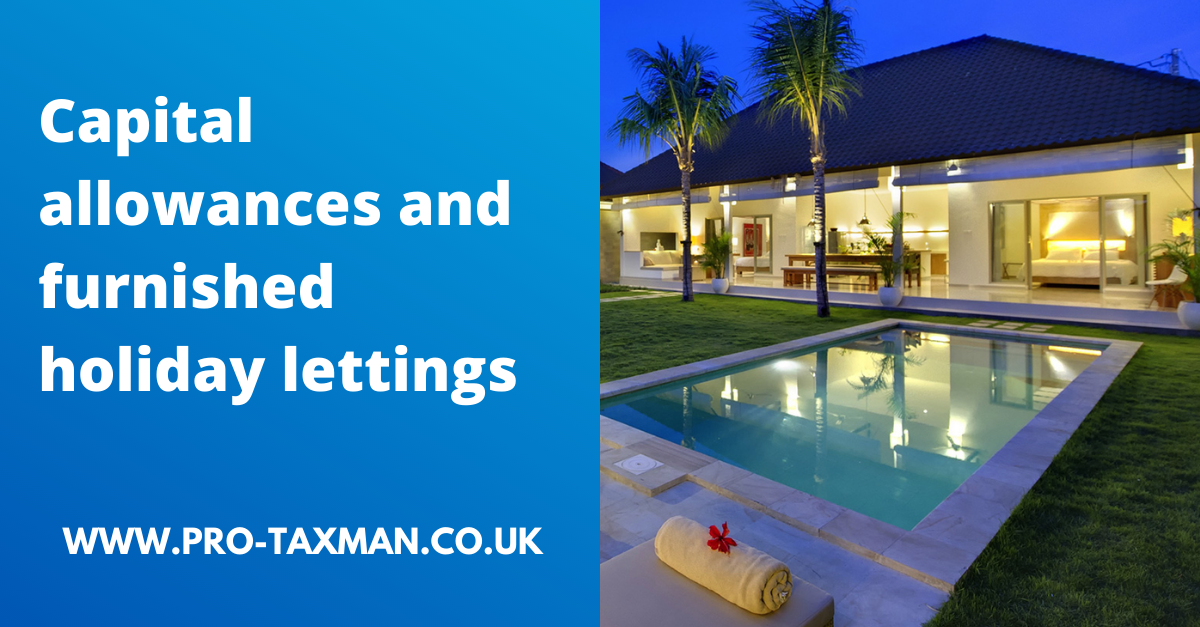When it comes to let properties, furnished holiday lettings (FHL) are a special case and
benefit from a number of concessions not available to standard lets. The concessions are
only available if the property meets the tax tests to qualify it as a furnished holiday letting –
the fact that it may be let out for holiday use in itself is not sufficient.
One of the benefits of being classed as a furnished holiday let for tax purposes is that plant
and machinery capital allowances can be claimed. This is something which is not available to a landlord of a residential long-term let.
What is a FHL?
To be classed as a FHL for tax purposes, the property must be let furnished on acommercial basis and:
it must be available for letting for at least 210 days in the tax year;
it must actually be let for 105 days in the tax year;
it is not let for lets of 31 days or more for more than 155 days in the tax year.
Where the tests are not met in a particular tax year, it may be possible for the let to qualify
by making an averaging election (possible if the landlord has more than one holiday let) or a
period of grace election (possible where the tests have been met previously).
Availability of capital allowances
A FHL business is a qualifying activity for plant and machinery capital allowances. This
means that capital allowances can be claimed for items of plant and machinery, such as
furniture, equipment and fixtures.
Where the business is run as an unincorporated property business, the landlord can claim
either the annual investment allowance (AIA) or writing down allowances. The AIA provides
relief for 100% of the qualifying expenditure in calculating taxable profits for the tax year in
which the expenditure was incurred. Claims for the AIA can be made up to the AIA limit,
which is set at £1 million a year until 31 March 2023. Where the AIA is not available (for
example, because the limit has been used up), or the landlord does not want to claim it,
writing down allowances can be claimed instead.
Claims for capital allowances can be tailored. This is useful to prevent personal allowances
from being wasted.
If the business is run as a company, there is also the option to claim the super-deduction for
expenditure that would otherwise qualify for main rate capital allowances of 18% where the
expenditure was incurred in the period from 1April 2021 to 31 March 2023. The super-
deduction allows 130% of the expenditure to be deducted in computing profits, and is very
worthwhile.
Companies can also benefit from a 50% first year allowance for expenditure incurred in the
same period which would otherwise qualify for writing down allowances at the special rate of
6%. This may be useful if the AIA is not available.
Need professional accounting service or accounting advice? Contact us to book a 15-min Free Consultation with us today.
To find out more please follow us on Facebook, Twitter, or LinkedIn. Feel free to contact us on 0333 006 4847 or request a call back by texting 075 6464 7474

